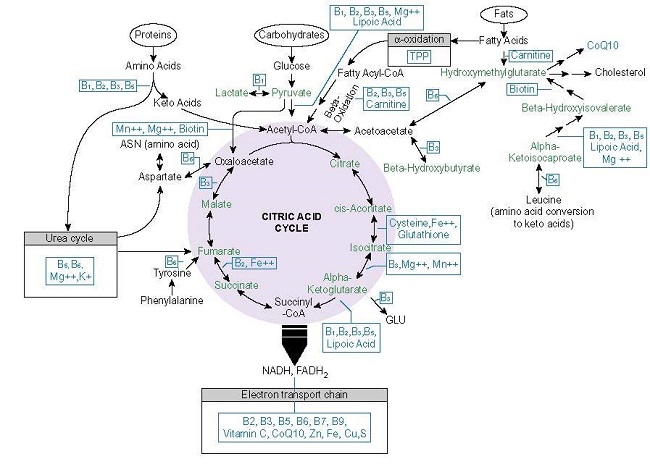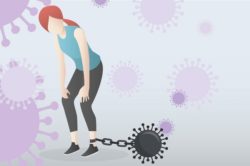The following article came up on one of my feeds recently: Antibiotics Against COVID-19 and Mitochondria? Urgent Thinking Out of the Box. I hope it is one of the first of many articles questioning damage done to mitochondrial function by medications. Below is the twitter thread where I contemplated this topic. This is the fourth in a series of short posts adapted from my writings on twitter. The other three can be found here, here, and here.
Medications and Mitochondrial Damage
Not sure that it should be considered out-of-the-box, but here we are, so entrenched in the benefits of all meds for all disease processes that we forget to even question their utility or their mechanisms. Yes, the data presented here are preliminary and merely correlational but the questions the report poses are valid, particularly when one knows that these and other drugs severely damage the mitochondria; making a bad situation infinitely worse.
Everything about the COVID crisis speaks to broader crisis in medicine; namely that we cannot medicate our way out of bad health. Indeed, much of the ill-health is sadly iatrogenic. Medications damage mitochondria.
- Here: Medication‐induced mitochondrial damage and disease
- Here: Drug-Induced Mitochondrial Toxicity in the Geriatric Population: Challenges and Future Directions
- Here: Mitochondrial Toxicity
- And here: Ciprofloxacin impairs mitochondrial DNA replication initiation through inhibition of Topoisomerase 2
This is just for starters – but there are hundreds of articles on this topic. [See below for a few more articles.]
We tend to think these effects are rare, mainly because we pay them no heed, but also, because we rarely connect the dots and go deeply enough into the chemistry to recognize that this mitochondrial damage is not merely a rare ‘adverse’ effect of the drug in question, but simply an effect of the drug itself. It is a mechanism of its chemistry, something it was designed to do. We only call them adverse effects and think of them as rare because we want to believe in the controllability of drug mechanisms; that we can target these medications specifically, that we can compartmentalize, much like we have compartmentalized organ systems and medical specialities.
This is bolstered, of course, by the fact that some folks seemingly resist such ‘adverse’ reactions. I say seemingly, because the chemistry of the drug is the chemistry of drug no matter into whom it is placed.
Just because someone doesn’t appear to suffer ill-effects from a medication does not deny that the chemistry induced them. It means only that the individual had sufficient mitochondrial reserves to withstand the damage of the drug. That’s it.
Everything we see with the COVID crisis points not just to the strength of the virus, but to our weaknesses metabolically, medically, and intellectually.
We believed for so long that we could medicate our way out of poor lifestyles, that the answer to everything was more medication, more chemicals, and more technology, that we completely forgot the most fundamental aspects of health depend entirely upon the mitochondria and all that the mitochondria require are nutrients. They do not require chemical toxicants. Those are stressors that must be withstood. Even those medications deemed necessary are mito-toxicants. Every single one of them.
COVID is bringing that into full relief. The multi-organ failure, the panoply of seemingly random symptoms attributed to COVID – that is mitochondrial failure – brought on by chronic ill health, initiated and/or exacerbated by drug induced mitochondrial damage.
The virus has simply expedited that process in a way that none of us were prepared for. So is it out of the box to consider antibiotic induced mitochondrial damage leading to COVID death? No. It is finally placing the mitochondria into the ‘medical’ box where they belong.
The question is whether any of us is ready to consider the depth of our folly and ignorance regarding medication effects. Do we really want to know what damage we might have done to ourselves and others?
Postscript: Diet and Chemically Induced Mitochondrial Damage
There are a few points to note with medication-induced mitochondrial damage that I did not cover in the thread above. First, mitochondria require nutrients to function properly. See Figure 1. below. To the extent any of those nutrients are insufficient in the diet makes one more susceptible to the damage by chemical toxicants. A diet full of processed foods, though fortified, is often nutrient deficient while simultaneously full of chemical additives that increase the burden on mitochondria (here, here, here). Similarly, conventionally grown agriculture and livestock, while healthier than their highly processed counterparts, contain fewer nutrients today than they did in decades past and than their organic counterparts. And once again, because of current agricultural practices, carry a higher toxicant load which must be dealt with by the mitochondria (here). Achieving nutrient sufficiency with a typical western diet is difficult at best and many individuals suffer from what we call high calorie malnutrition.
Second, pharmaceuticals leach nutrients and thus both short term, but especially, long term usage of common medications is likely to leave one in a precarious state of nutrient insufficiency and even outright deficiency. This imperils mitochondrial function. The mitochondria require lots of nutrients to function. Insufficiency in any one of the micronutrients listed below elicits negative compensatory reactions that become the hallmarks of the metabolic disease processes plaguing modernity.

Third, chemical toxicants, whether of the pharmaceutical or environmental persuasion, damage the mitochondria both by leaching those nutrients, as mentioned above, but also, by blocking or overriding various enzymes and functions within the mitochondria. So even if one had a pristine diet, and who among us does, exposure to these toxicants demands a surplus of nutrients to withstand the effects of these chemicals.
Fourth, battling a serious virus or any illness or serious stressor requires exponentially more ‘energy’ than is required for everyday living, even without the added stressor of the medication induced damage. This increase in demand necessitates efficient mitochondrial function and the continued supply of both macro- (carbs, fat, and protein especially) and micro- (vitamins and minerals) nutrients. Absent that supply, damage is incurred. In other words, to survive an illness, any illness, the body requires fuel. When that fuel is insufficient or absent, as is so often the case with serious illness, mitochondrial collapse and significant morbidity, and eventually, death become imminent. So when we consider how to treat the illnesses associated with the COVID virus, it is incumbent upon us to remember that the health and fitness of the mitochondrial response will determine success or failure.
Mitochondrial Damage via Nutrient Depletion
Below are additional articles on nutrient depletion by medication and environmental exposure. These depletions are recognized, but few make the connection between nutrient depletion and mitochondrial damage unless one understands the chemistry and the nutrients involved in the various pathways leading to, through, and from the mitochondria (see Figure 1. above). Then, it becomes clear just how easily mitochondria can become impaired. This is not a complete list. It is just a sampling. I have included a few articles of my own on common drugs for the pre-existing conditions most commonly presenting with COVID where associated research articles are hyperlinked within.
- Evidence of Drug–Nutrient Interactions with Chronic Use of Commonly Prescribed Medications: An Update
- Drug Nutrient Interactions by Class
- Hidden Disruption in Metabolic Syndrome: Drug-Induced Nutrient Depletion as a Pathway to Accelerated Pathophysiology of Metabolic Syndrome
- Drug-Induced Nutrient Depletions
- Drug–nutrient interactions: discovering prescription drug inhibitors of the thiamine transporter ThTR-2 (SLC19A3)
- Stop the Metformin Madness
- Metformin: Medical Marvel or Magical Medicine?
- Do Statins Induce Atherosclerosis and Heart Failure?
Environmental Chemicals, Pharmaceuticals, and Mitochondrial Damage
- Mitochondria as a Target of Environmental Toxicants
- Clinical effects of chemical exposures on mitochondrial function
- Air Pollution-Derived PM 2.5 Impairs Mitochondrial Function in Healthy and Chronic Obstructive Pulmonary Diseased Human Bronchial Epithelial Cells
- Drug induced mitochondrial dysfunction: Mechanisms and adverse clinical consequences
- Drug Induced Mitochondrial Dysfunction: An Emerging Role for Idiosyncratic Drug Toxicity
The research above involves illustrates the mitochondrial damage precipitated by individual toxicants. In reality, no one is ever exposed to just one toxicant. Polypharmacy is rampant and environmental exposures are broad. How those combine to affect mitochondrial function no one really knows. We don’t study combined exposures. What we do know, however, is that much of the population is not as healthy as we consider them to be.
We Need Your Help
More people than ever are reading Hormones Matter, a testament to the need for independent voices in health and medicine. We are not funded and accept limited advertising. Unlike many health sites, we don’t force you to purchase a subscription. We believe health information should be open to all. If you read Hormones Matter, like it, please help support it. Contribute now.












